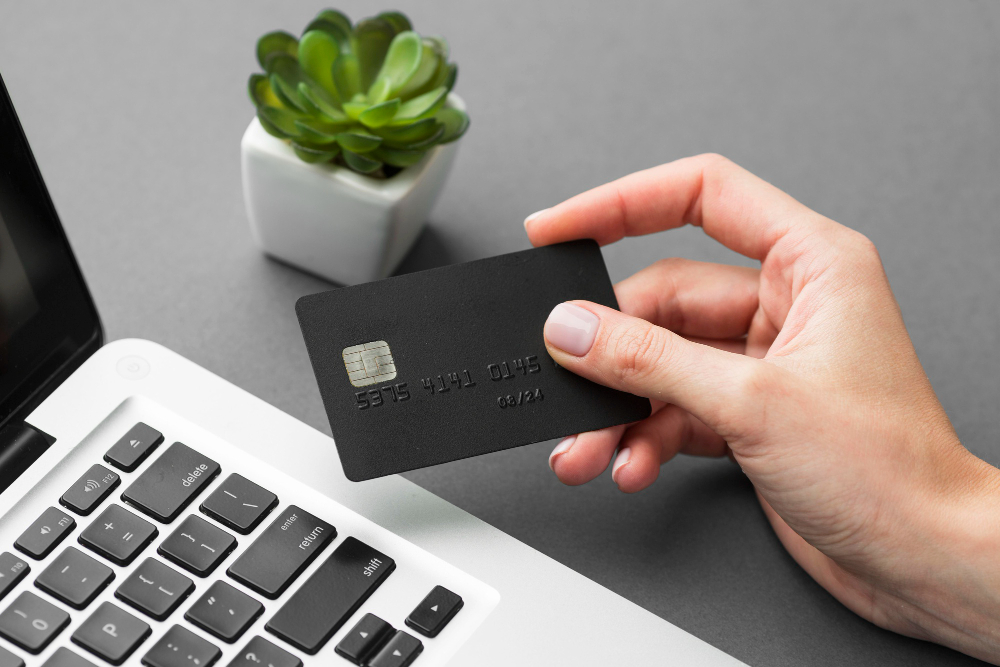Are you still struggling to manage your company’s expenses? Business owners are often stuck in chaos: complicated payments to vendors, piles of receipts, and difficulty separating personal and business finances. All of this can waste time and potentially lead to losses.
Using cash or personal cards for business expenses can be fatal. Financial reports become inaccurate, manual reconciliation takes hours, and you don’t have full control over cash flow. Without the right tools, your business growth can be hindered.
A business payment card is the modern answer to these problems. This financial tool is designed to simplify expense management, provide transparency, and increase efficiency. This article is your complete guide to getting to know the different types of payment cards, their benefits, and how to choose the best one for your business.
Getting to Know the Different Types of Business Payment Cards

In today’s market, there are various types of payment cards that can be tailored to your business’s specific needs. Understanding the differences is the first step to making the right decision.
1. Corporate Card
A corporate card is issued in the company’s name and is intended for senior employees, managers, or teams who frequently travel for business. These cards usually have higher credit limits and sophisticated reporting features to manage large expenses.
Suitable for: Medium to large-scale companies that need a centralized tool to manage operational and employee travel expenses.
Advantages: Full control by the company, detailed reports, and easy integration with accounting software.
Semantic Keywords: Corporate card for companies, business expense management.
2. Business Card
A business card is often intended for SME owners or individual professionals. Although it has similar features to a corporate card, it usually has a lower credit limit and more flexible requirements.
Suitable for: SMEs and startups that want to separate personal and business finances.
Advantages: Simplifies the tracking of small-to-medium operational expenses and offers relevant reward programs for businesses.
Semantic Keywords: Business credit card, business card for SMEs.
3. Virtual Card
A virtual card is a non-physical version of a credit card. It is only digital data that can be used for online transactions or through an application.
Advantages: High security (with single-use card features), instant issuance, and very flexible control.
Suitable for: Online payments (software subscriptions, digital advertising), payments to vendors or freelancers, and international transactions.
Read Also: Discover 7 Benefits of Using Digital Cards for Business Efficiency
4. Prepaid Business Card
A prepaid business card is a card that must be reloaded and has a limited balance. This card provides the tightest control over spending.
Suitable for: Managing budgets very strictly, controlling expenses per project, or giving cards to junior-level employees.
Advantages: Eliminates the risk of overspending and simplifies budget tracking.
Semantic Keywords: Prepaid card for business, controlled team spending.
5 Main Benefits of Using a Business Payment Card

Using a business payment card is not just about convenience, but also about strategic efficiency. Here are five main benefits you can get:
1. Separating Personal and Business Finances
This is the main foundation of healthy financial management. Using a personal card for business expenses will complicate bookkeeping, make reconciliation difficult, and can cause problems during an audit.
With a specific business payment card, all business transactions are automatically separated, ensuring clarity and transparency. A study from Harvard Business Review shows that businesses that do not separate personal and business finances have a 20% higher risk of bankruptcy.
2. Increased Control and Transparency of Spending
The control features on a business payment card give managers and business owners full power to manage expenses. You can set daily, weekly, or monthly limits for each card. Some platforms even allow you to restrict spending to specific categories, for example, only for online advertising costs or transportation.
For instance, your marketing team is given a card with a Rp10 million monthly limit and can only use it for expenses on digital advertising platforms. This prevents funds from being used for other purposes and ensures the budget is controlled.
3. Accelerating Financial Administration Processes
One of the biggest reasons companies use payment cards is efficiency. The manual process of creating expense reports is very time-consuming. Employees have to collect receipts, record them on a spreadsheet, and send them to the finance team.
With a payment card, every transaction is automatically recorded and can be sent to an expense management application. Employees only need to upload a photo of the receipt or invoice, and the data will be matched automatically. According to Deloitte, the use of expense automation platforms can reduce the time spent on administration by up to 75%.
4. Improving Financial Report Accuracy
Good business financial management relies heavily on accurate data. Manual transactions often contain entry errors, wrong numbers, or lost receipts. Because every transaction with a business payment card is recorded digitally, the risk of human error is almost non-existent.
This data can be directly integrated with accounting software, ensuring your financial reports are always accurate and detailed, which is very useful during an audit or when you need to make strategic decisions based on data.
5. Simplifying International and Online Transactions
Many businesses, especially startups and SMEs, often make payments to vendors or subscriptions to services from abroad. Business payment cards make these transactions easy. Some platforms even offer a virtual card feature that can be created in seconds for more secure online transactions.
For example, you need to pay for a software subscription from the U.S. A corporate card with a virtual card feature can be created with a specific limit, reducing the risk of your main card data being leaked.
How to Choose the Right Payment Card for Your Business
Choosing the right payment card is an important decision that should be tailored to your business’s specific needs. Here are some considerations:
- Need Analysis: Evaluate your business’s spending patterns. Are online transactions, business trips, or different department expenses more frequent? The answer will help you determine the most suitable type of card.
- Feature Comparison: Compare the features offered by card providers, such as credit limits, annual fees, reward programs, and most importantly, the ability to integrate with your accounting software.
- Service Provider: Know that there are many options, from traditional banks that offer business credit cards to innovative fintech companies that focus on virtual cards with advanced control features.
Conclusion
Ultimately, a business payment card is a strategic tool for efficiency, control, and growth. By choosing the right card, business owners can transform expense management from a messy task into a structured and modern system. This card is not just a payment tool, but also an investment in a more efficient and sustainable future for your business.
Don’t let unmanaged expenses threaten your business. Consider using a business payment card as a strategic step to optimize expense management, reduce risks, and drive your business toward long-term success.
Use Jack for Your Business Needs
As a leading provider of custom software financial management solutions in Indonesia, Jack offers an all-in-one financial operations platform built to simplify and automate corporate finance workflows.
From the Corporate Card that allows real-time tracking and budget control for team expenses, to International Transfer for fast, flat-fee cross-border payments, and Local Transfer for instant domestic fund transfers to banks or e-wallets, Jack unifies key financial functions in one streamlined ecosystem.
Other standout products include Pay Invoice for automated invoice settlement, Payroll for effortless employee salary distribution, and Reimbursement that enables simple expense claims through photo uploads and digital approval flows.
Jack doesn’t just offer tools—it prioritises real-time control, process efficiency, and audit-readiness. With full transaction visibility via a centralized dashboard and regulatory oversight by Bank Indonesia, businesses gain financial agility and peace of mind.
Whether you’re a growing startup or an established enterprise, Jack is your tailored partner for seamless, secure, and smart financial management in Indonesia.






